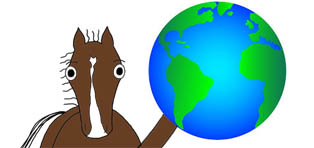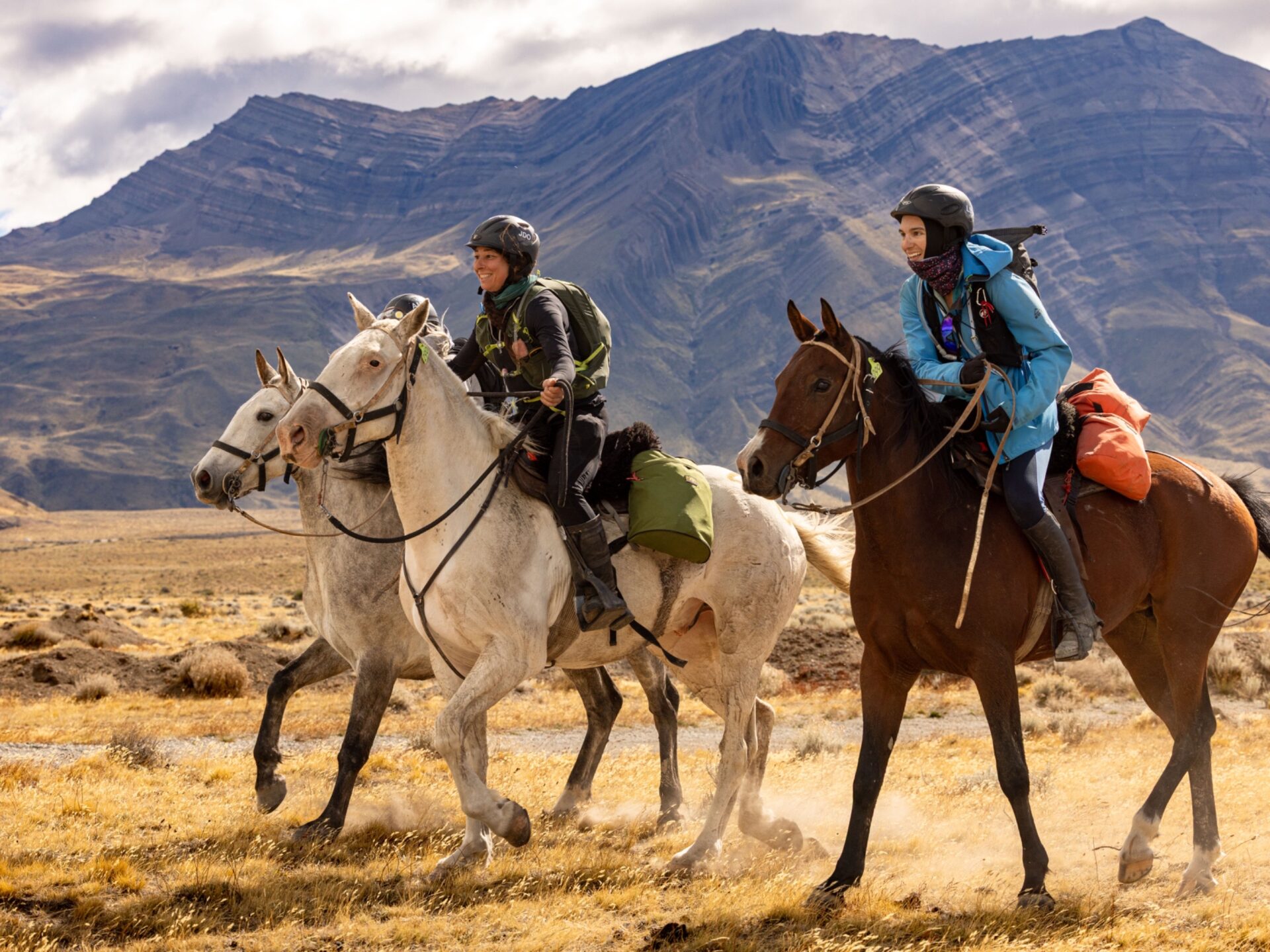
By Fiona Leney
Published: July 8 2005 15:53 | Last updated: July 8 2005 15:53
A thin cloud of white dust, churned by dozens of milling hooves, is rising lazily, obscuring the camelthorn trees in the grey light of dawn. As the horsemen launch off into the veld, grooms and supporters adjust blankets clutched against the cold and nurse tins of lager. It may only be 5.30am but it?s never too early for a tinnie at a South African endurance ride.
The mere sight of alcohol is enough to set the head reeling after a night of downing Cape wine and Old Brown Sherry, between square dances to the sound of fiddle and accordion under a starlit sky.
We are here to ?groom? ? or help with the horses ? for our Afrikaner friends, a young couple who breed Arab horses for a hobby. Hurbey and Johannie have promised that here we will see a different side to the traditionally dour Afrikaner, and get a taste of true hospitality.
The farm at which the event is being held is beyond Zeerust, a town 200km northwest of Johannesburg on the border with Botswana. Unmarked dirt tracks have to be followed, turns made at crooked Jacaranda trees, farm gates with ?private property, trespassers will be shot? gone through. When we arrive, at a clearing in the middle of nowhere, it is like the meeting of a horsey secret society.
Massive farmers squeezed into khaki shorts stride around in suede veldskoene, the tribe?s hallmark footwear. Their equally massive wives, squeezed into floral Crimplene, prepare vats of stew and pap (cornmeal porridge) over open fires. All of them eye us suspiciously.
It is only once we have been rescued by our friends that the thaw, slowly, sets in. They introduce us to Rolf, an Afrikaner, yes, but slight, pony-tailed and quietly spoken. He is the current South African endurance riding champion.
Endurance riding is the equine equivalent of a cross-country marathon. Horses and riders gallop through scrub and bush (the rides are sometimes set in game parks, to provide an added incentive to speed), up mountains and through rivers and sand. Arabs are the mounts of preference for their stamina and speed. Thoroughbreds are just too fragile.
The riders, too, have to be tough. ?It?s an obvious sport for Afrikaners traditionally ? we like to test ourselves against the bush and even now if you farm it?s often easier to ride out to inaccessible places than to try and take motor vehicles,? Rolf tells us.
The endurance riding season starts in January, South African summertime ? and ends in May. As its popularity grown abroad, international interest ? and money ? is beginning to flow into the sport in South Africa.
Foreign riders, attracted by South Africa?s spectacular scenery and varied riding terrain, pay well to hire a good mount, and some competitors, such as Clint and Julie-Ann Gower, are offering tourists the chance to share their passion.
The Gowers offer week-long riding packages at their stud on South Africa?s Wild Coast ? south of Durban ? built around participation in an endurance event.
They are perfectly prepared to load guests and horses up and drive for hours to meets such as this one. But, as they themselves are quick to point out, what happens after the horses are tucked up at the end of the day is at least as important as the equine element.
The endurance ride is to the South African horseman what the hunt ball used to be to his foxhunting UK counterpart.
As the sun begins its African plunge to the horizon, there is a general rush to the bakkies, the pick-up trucks that are the vehicle of choice for serious outdoor enthusiasts here, and we take to the fuzzy green hills that peer across the border into Botswana. Bumping up tracks cut by livestock we finally arrive at the top of the hill just in time for that perfect gin and tonic (a generous concession to the English guests) as the sun goes down.
Around us, but apart (reminding me of the famous dictum that an Afrikaner farmer feels his neighbour is too close if he can see his chimney smoke from his homestead) are other little groups savouring the view.
A dark whirl of feather suddenly explodes from the track ahead; ?Look, a Mozambican nightjar,? calls our neighbour in English. We are touched that he cared so much to inform the tourists that he bothered to break out of Afrikaans.
Back at camp, and fortified by alcohol, we are introduced. To our astonishment, there is general pleasure that rooineks ? the contemptuous name for the sunburnt British soldiers that fought in the Boer war ? are interested in Afrikaners at all. We are accepted into the tribe.
At our own camp fire, Hurbey and Johannie make boerbrood: ?The best bread you will ever taste, man?. The dough is formed into little square buns and placed straight on the griddle to rise and cook. A friendly dispute arises with neighbours over whether this is in fact superior to their boer brot, which has been allowed to rise, then placed in a foil-covered tin and buried in the embers of their fire to bake.
After the race on the second day, the real celebrations begin. Each group has its own barbeque, or braai, but bakkies and the tents are ranged around in a loose circle, in a modern day take on the ox-wagons of their forefathers. First there is the awards ceremony. Rolf has won again on his dainty little mare. ?Don?t call her a pony,? hisses Hurbey with concern. ?You never call an endurance Arab a pony, no matter how small it is.?
Later, when we?ve all had too much to drink to know better, the band strikes up. At the end of a dance floor made from beaten earth and marked out by straw bales, four old men take up their fiddles and accordions and launch into sakie sakie, the Afrikaner equivalent to American square dancing.
As couples flood on to the floor in jeans and checked shirts ? some men with small, evil looking hand-guns on their belts ? it strikes me that this is a scene straight from the Wild West. Change, it is true, has come. There are now some black riders in the events. But they are mostly grooms. None of them owns their own horses.
?Don?t go talking politics,? I am warned when I ask about this. ?It won?t go down well.? Many young Afrikaners like Hurbey and Johannie have embraced with enthusiasm the democratic South Africa that emerged 11 years ago. But the older generation often finds it hard to accept that years of privilege are over.
On a cultural level, the rise of English as the country?s post-liberation lingua franca has added to the feeling that Afrikaner identity is, once more, under threat. ?Last time we were so hemmed in was by you Brits in the Boer War,? says Hendrik, a giant of a man, chaperoning his daughter at her first ride. ?But, d?you know what, Engelsman,? he calls to my husband, ?My grandpa beat you rooineks at Spionkop good and proper!?
He bursts into laughter at the memory of a particularly ignominious British defeat during the war, then strides up and claps a hand on his back, while proffering yet another beer. Not for the first time, it strikes me that Afrikaners like to keep one veldskoene-clad toe firmly in the past.
A week?s riding holiday at the Gowers? farm, including participation in an endurance ride, costs around R5,000, excluding international flights, and onward transfer to East London airport. Further information and contact details on www.sunrayfarm.co.za



No comments:
Post a Comment